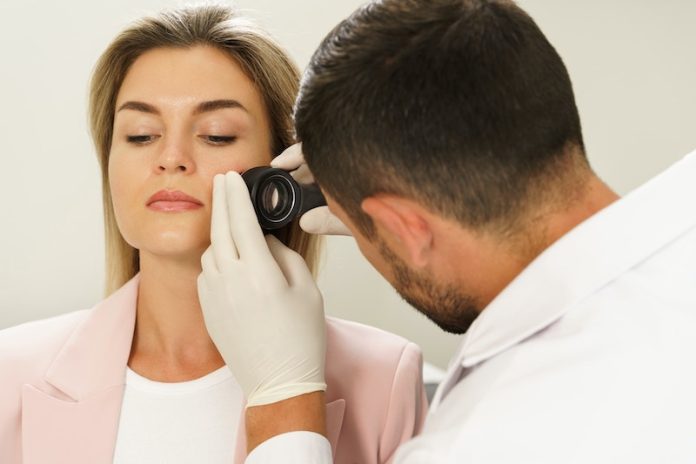
Imagine you hear about two forms of skin cancer: one is frequently discussed, recognized as dangerous and has a pronounced reputation for being lethal – melanoma; the other is often labeled as ‘less severe’ – non-melanoma skin cancer (NMSC).
You might instinctively consider the second one, NMSC, to be less threatening.
However, a study presented at the 2023 European Academy of Dermatology and Venerology Congress tells a different story: NMSC might be causing more global deaths than its formidable counterpart, melanoma.
The Unseen Toll of NMSC
Despite being labeled as less severe, non-melanoma skin cancer has been quietly claiming more lives than expected.
In 2020 alone, while melanoma caused approximately 57,000 fatalities, NMSC was responsible for over 63,700 deaths, making up a whopping 78% of all skin cancer cases that year.
This startling revelation comes with an additional warning from researchers: NMSC is often underreported, which means the true impact of this disease may even be more substantial than these numbers portray.
The difficulty in tracking and understanding the impact of NMSC comes from its tendency to be overlooked in cancer registries, presenting a challenge in deciphering its actual burden.
Lead author Professor Thierry Passeron emphasizes, “The significantly higher incidence of NMSC has, therefore, led to a more substantial overall impact,” a fact that might be shadowed by the seemingly less severe nature of this type of skin cancer.
Identifying the Vulnerable
The data utilized in the study, derived from the World Health Organization International Agency for Research on Cancer, brought to light specific populations that were more susceptible to the disease.
Those with a higher risk include outdoor workers, organ transplant recipients, people with the skin condition xeroderma pigmentosum, the elderly, and fair-skinned populations, particularly from countries like the U.S., Germany, UK, France, Australia, and Italy.
But it’s vital to note that even countries with a high proportion of dark phenotypes, such as numerous regions in Africa where 11,281 deaths were registered, are not shielded from the fatal risks of skin cancer.
The Wider Message: NMSC Can Be Fatal Too
NMSC slowly develops in the upper layers of the skin, becoming cancers like basal cell carcinoma and squamous cell carcinoma.
Comparatively, melanoma arises in the melanocytes, which are the cells producing melanin.
While NMSC is less likely to metastasize to other body parts and generally can be treated more straightforwardly than melanoma, its remarkably higher prevalence raises serious concerns.
Professor Passeron shares a crucial message, “It’s vital to note that individuals with melanin-rich skin are also at risk and are dying from skin cancer.
There is a need to implement effective strategies to reduce the fatalities associated with all kinds of skin cancers.”
Future Pathways: Developing Strategies and Awareness
Surprisingly, having more dermatologists per capita did not exhibit a notable impact on reducing mortality rates, according to the study.
Countries like Australia, the UK, and Canada, despite having fewer dermatologists, showed low mortality-to-incidence ratios.
So, what are these countries doing right in the fight against skin cancer? This is a question that requires deeper exploration.
Passeron suggests that the role of General Practitioners (GPs) and other healthcare professionals in identifying and managing NMSC might be a significant factor, indicating a global opportunity to elevate their role in early detection by training them to recognize suspicious skin lesions.
Moreover, it underscores the critical need for awareness campaigns that highlight the risks of sun exposure and other relevant risk factors to the general public, with a specific focus on at-risk populations.
And crucially, such initiatives should also address populations who may not typically be considered at high risk, such as those with darker skin.
In closing, Professor Passeron highlights a message of hope and urgency: “Skin cancers are preventable and treatable, so we need to do more to ensure we are stopping the progression of this disease as early as possible to save lives.”
This involves not only enhanced public awareness and healthcare professional training but also recognizing and respecting that NMSC, often in the shadow of melanoma, can be a silent, prevalent, and deadly threat that requires our collective attention and action.
If you care about skin health, please read studies about eating fish linked to higher risk of skin cancer, and Vitamin B3 could help prevent skin cancers.
For more information about health, please see recent studies about vegetable oil linked to spread of cancer, and results showing Vitamin D could help treat skin inflammation.
Follow us on Twitter for more articles about this topic.
Copyright © 2023 Knowridge Science Report. All rights reserved.



